Pressure Washing – What You Need to Know Before You Blast
Pressure washing feels like magic: one push, and grime disappears. But it’s not just about turning a knob and hoping for the best. The right technique, pressure level, and cleaning solution can protect your surfaces and save you money. Below you’ll find straight‑forward advice that works for homeowners and anyone thinking about hiring a pro.
Why bother with a pressure washer at all? It removes dirt, moss, mold, oil stains and even old paint faster than scrubbing by hand. A clean driveway boosts curb appeal, and a spotless house siding can raise property value. Plus, regular washes help prevent long‑term damage caused by algae or salt buildup.
Safety comes first. Wear goggles, gloves, and closed‑toe shoes. Never point the spray at people, pets, or electrical outlets. Start on the lowest pressure setting and increase only if the surface tolerates it. A sudden blast can chip paint, crack concrete, or even cause injury.
Choosing the right PSI (pounds per square inch) is easier than you think. For most house siding, 1500‑2000 PSI is enough; go higher only for stubborn oil on driveways. Concrete can handle 2500‑3000 PSI, but anything above 3500 PSI risks etching or cracking. Pair the PSI with the correct nozzle: a 25° nozzle gives a gentle wash, while a 0° concentrates power for tough spots.
Choosing the Right Pressure and Equipment
When you buy or rent a washer, look for adjustable pressure and interchangeable nozzles. A hot‑water model can cut through grease without harsh chemicals, but cold water with a proper detergent works fine for most jobs. If you’re only cleaning vinyl siding, a 2000 PSI unit with a 40° fan tip will protect the material while getting rid of dirt.
Many people wonder whether they need soap at all. Pure water can lift loose dust, but for mold, oil, or stubborn grime, a biodegradable cleaning solution makes a big difference. The right mix breaks down the buildup, letting the water rinse it away without scrubbing.
DIY vs Hiring a Pro
Doing it yourself saves money, but it can also lead to costly mistakes. If you’re unsure about the right pressure, nozzle, or cleaning solution, a professional service like Dandy Fox Cleaning can handle the job safely and efficiently. They know which surfaces need a gentle wash and which can handle a higher PSI, plus they bring their own water supply and eco‑friendly detergents.
Common questions we see include: “Will 3500 PSI damage my concrete?” – usually not if you keep the nozzle moving and use a wide fan tip. “Can pressure washing remove mold?” – yes, when combined with a mold‑killing solution. “Is it safe to use just water?” – sometimes, but soap often speeds up the process and improves results.
Whether you choose to rent a machine or call in the pros, the key is to match the tool to the job. Start low, test a small area, and adjust as needed. If you ever feel stuck, our blog has detailed guides on everything from “How Long Does It Take to Pressure Wash a House” to “Best PSI for Driveway Cleaning.”
Ready for a sparkling exterior without the guesswork? Contact Dandy Fox Cleaning Services today for a free quote, or grab a washer and put these tips to work. Your home’s surface will thank you, and you’ll avoid the hassle of accidental damage.
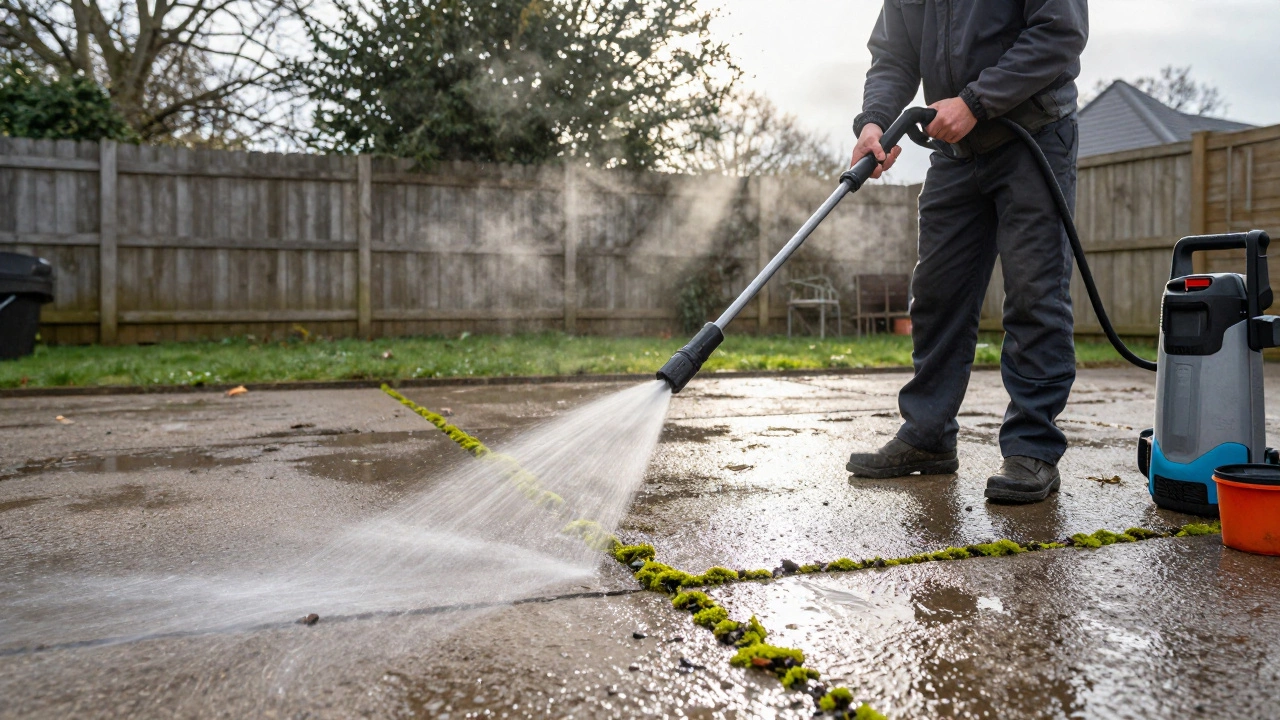
What Is the Difference Between Pressure Washing and Power Washing?
Pressure washing uses cold water for tough surfaces like concrete, while power washing adds heat to tackle grease, mold, and wood. Knowing which one to use saves time, money, and prevents damage.
Read More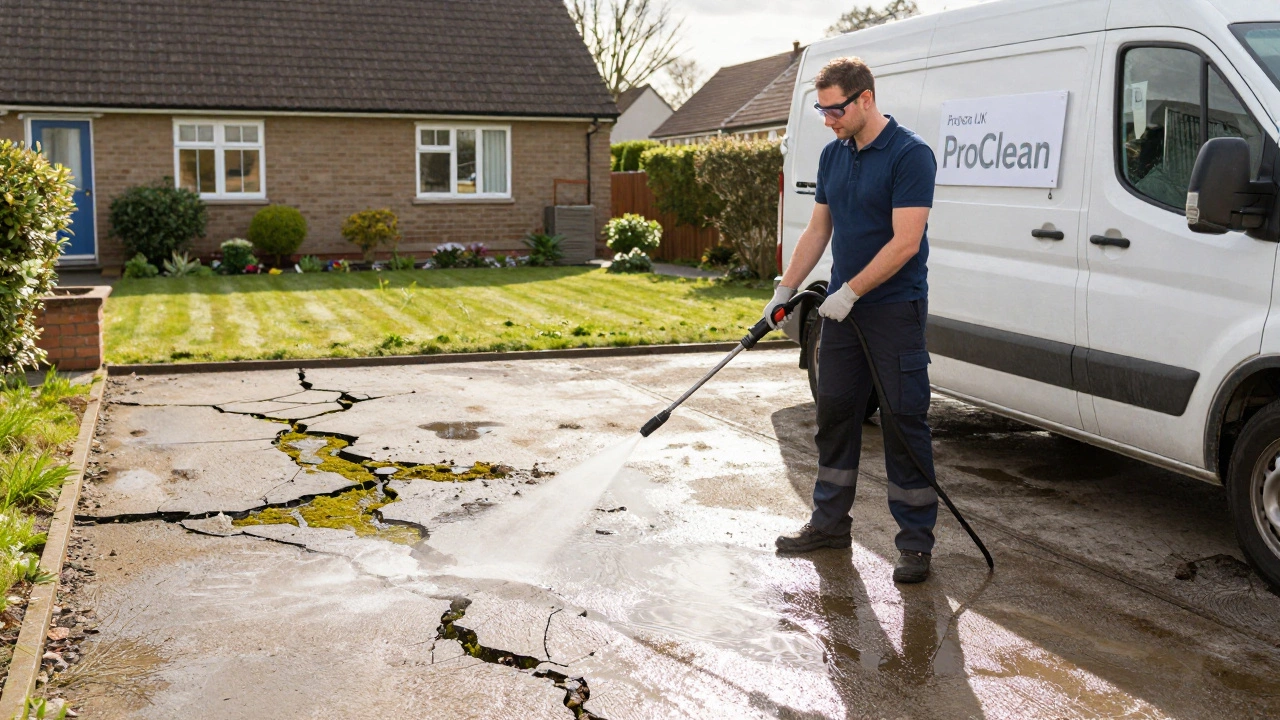
Is a pressure washing business worth it in 2026?
Is a pressure washing business worth it in 2026? Learn the real startup costs, profits, and hidden opportunities-without needing experience, a van, or a big budget. Start small, earn £40k+ a year, and build a business you control.
Read More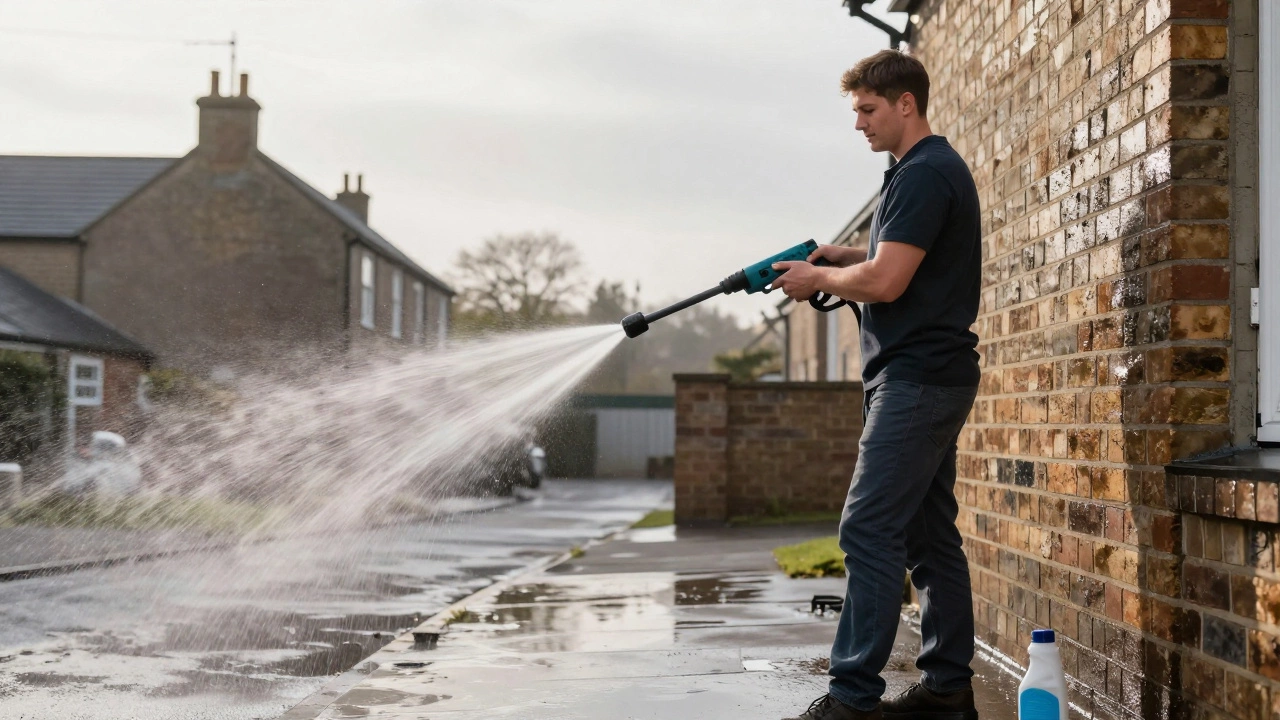
What Kind of Pressure Washer Do I Need to Clean My House?
Find out what type of pressure washer is best for cleaning your house safely and effectively. Learn PSI and GPM tips, electric vs gas, nozzle settings, and top models for UK homes in 2026.
Read More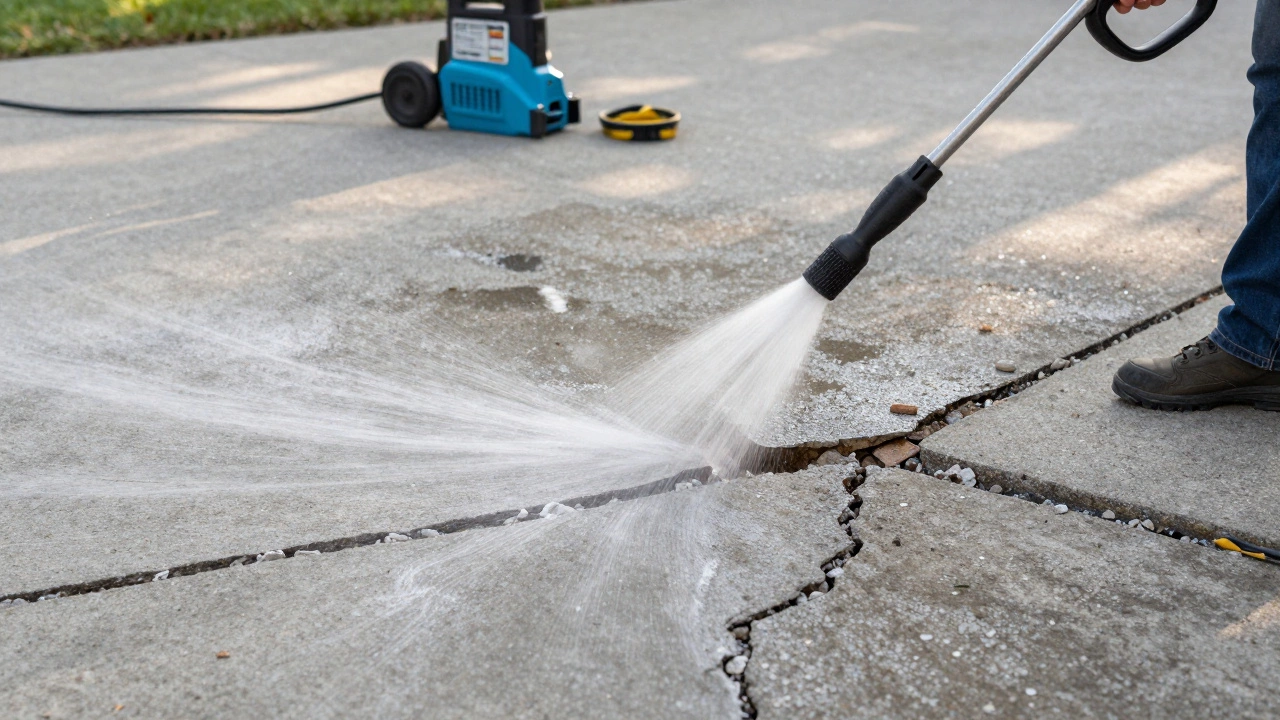
Is 4000 PSI Too Much for Concrete? Pressure Washing Guide for Homeowners
Is 4000 PSI too much for concrete? Learn the safe pressure levels, nozzle choices, and techniques to clean concrete without causing damage. Avoid costly repairs with the right approach.
Read More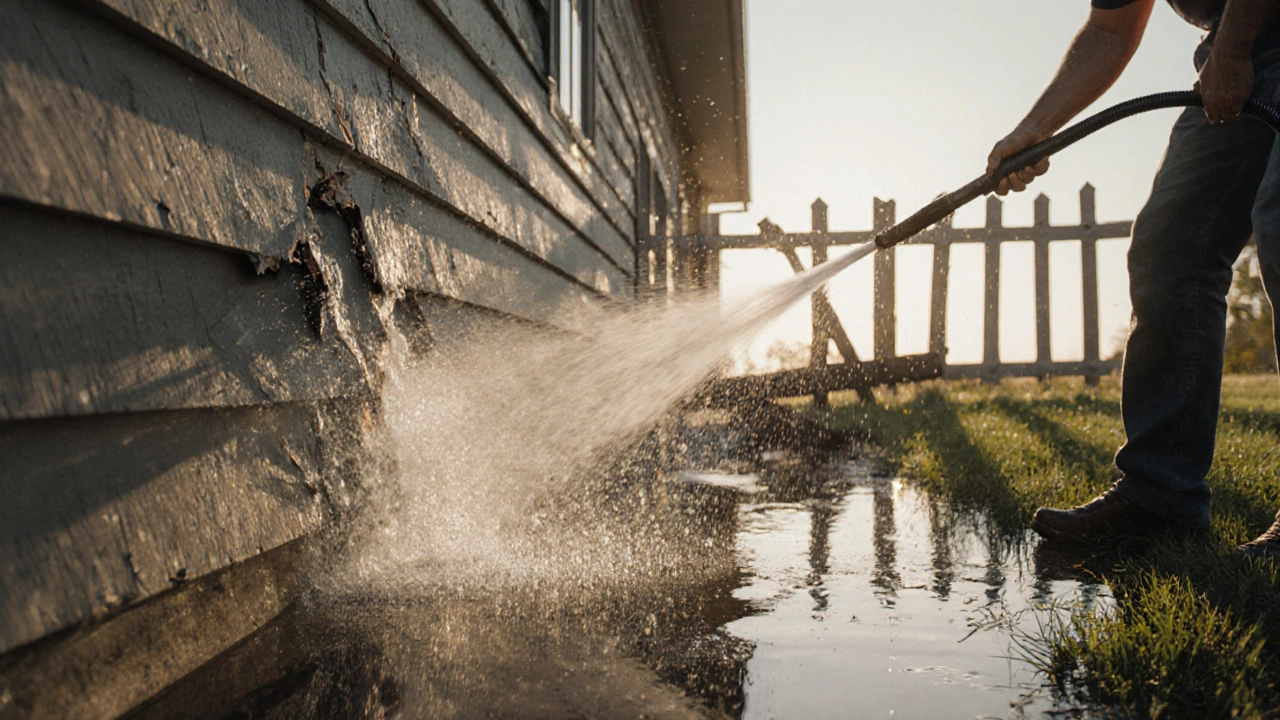
What Are the Disadvantages of a Pressure Washer? Real Risks You Can't Ignore
Pressure washers are powerful but come with serious risks-surface damage, water intrusion, safety hazards, and environmental harm. Learn the real downsides and how to avoid costly mistakes.
Read More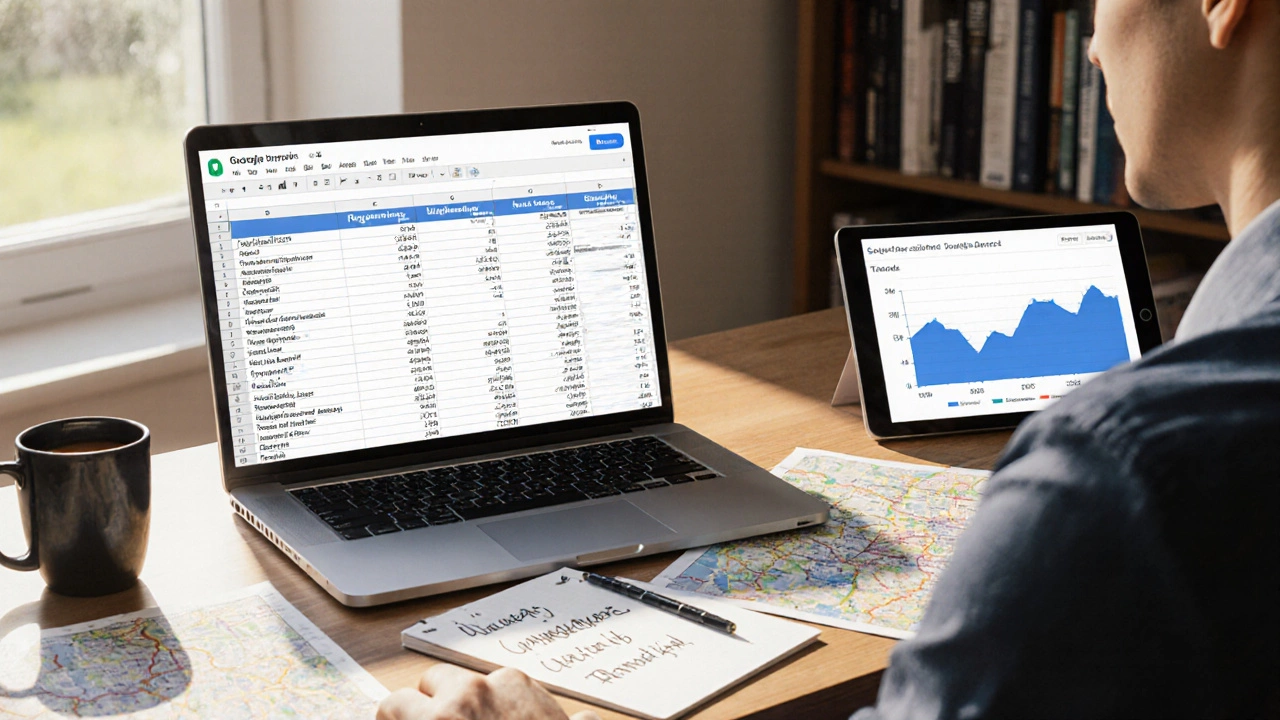
Essential Guide: What to Know Before Starting a Pressure Washing Business
Learn the must‑know steps for launching a successful pressure washing business, from equipment choices and licensing to marketing and pricing.
Read More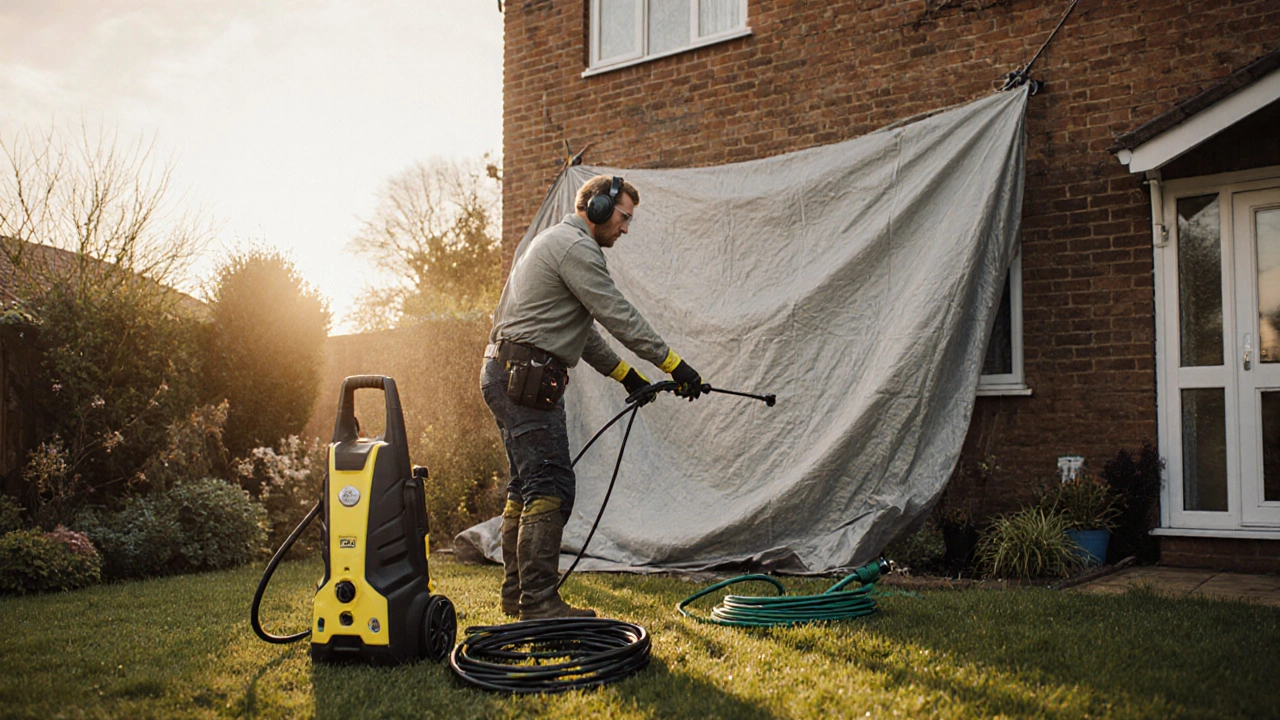
Essential Prep Items for Pressure Washing Your Home
Learn the must‑have items and step‑by‑step prep routine for pressure washing your home, from safety gear to cleaning agents and protective covers.
Read More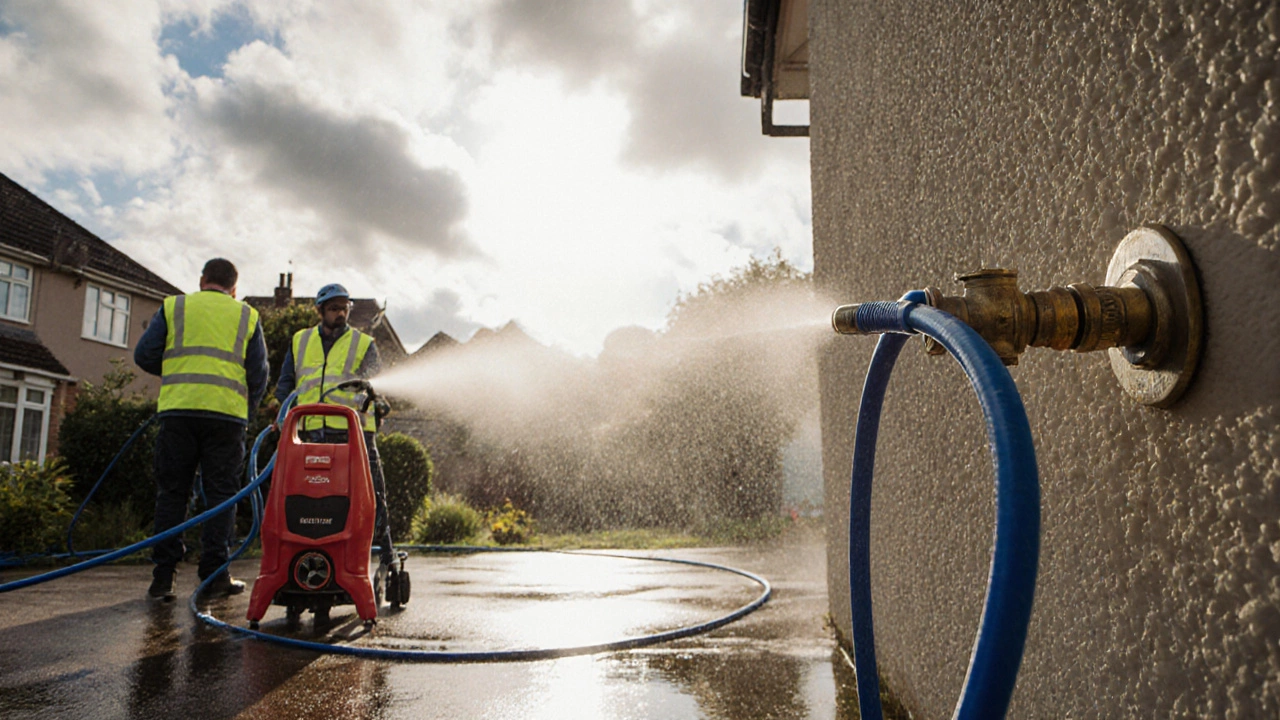
Do Pressure Washers Use Public Water? Facts About Water Sources and Conservation
Learn where pressure washers get their water, UK regulations, eco‑friendly alternatives, and how to ensure contractors use sustainable water sources.
Read More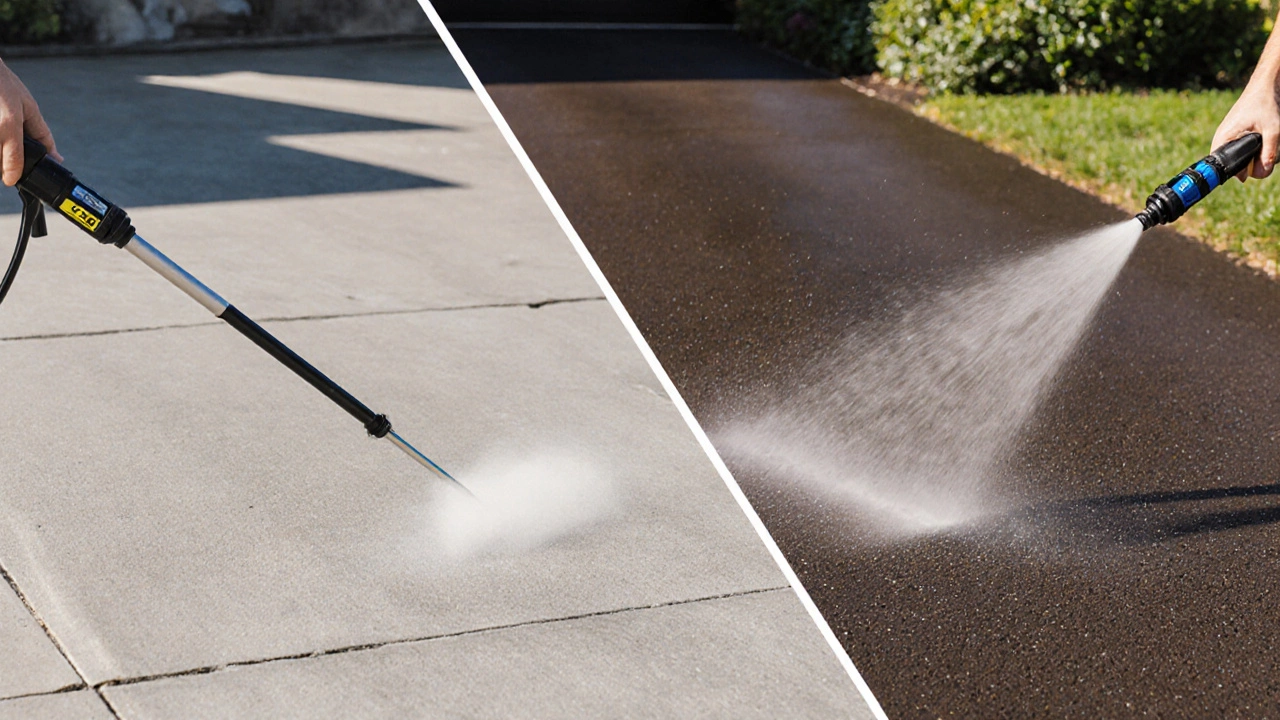
Driveway Pressure Washing: How Much PSI Do You Need?
Find out the exact PSI needed for concrete and asphalt driveways, learn how to pick the right pressure washer, adjust settings for tough stains, and avoid surface damage.
Read More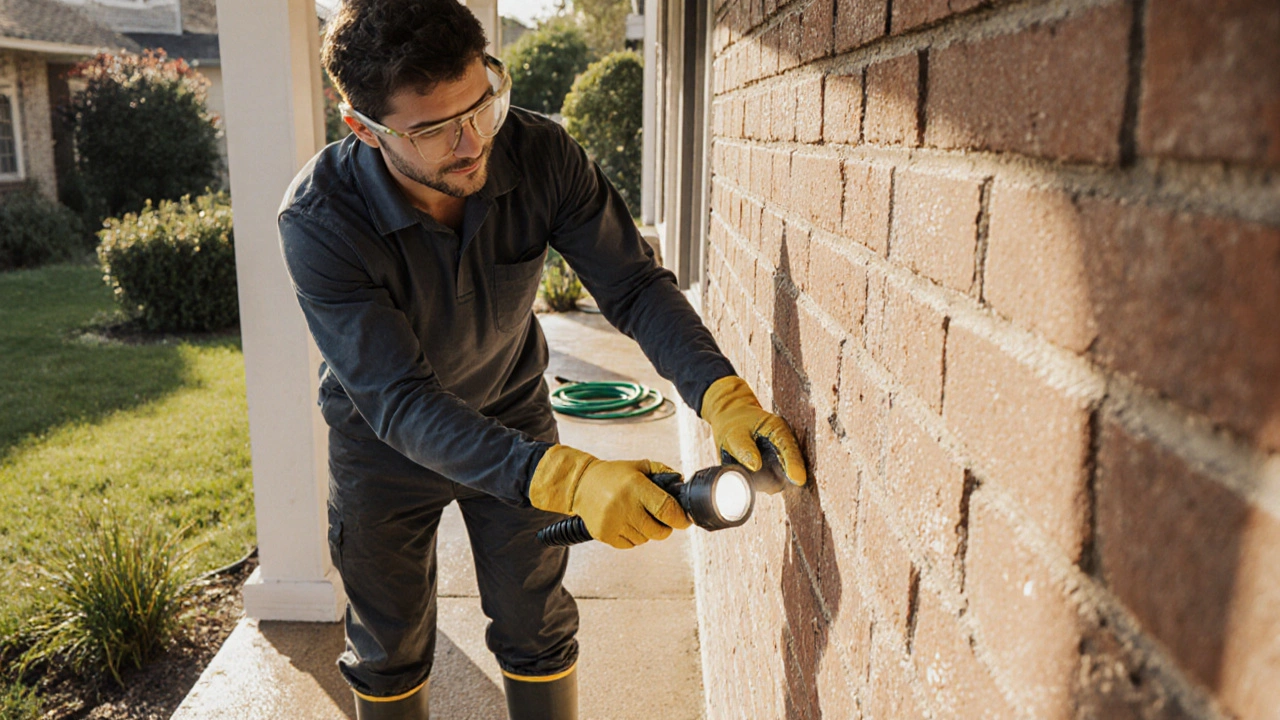
Essential Steps to Prepare Your Home for Pressure Washing
Learn the complete step‑by‑step guide to safely prepare your home for pressure washing, covering safety gear, surface checks, area clearing, equipment setup, weather tips, and a final checklist.
Read More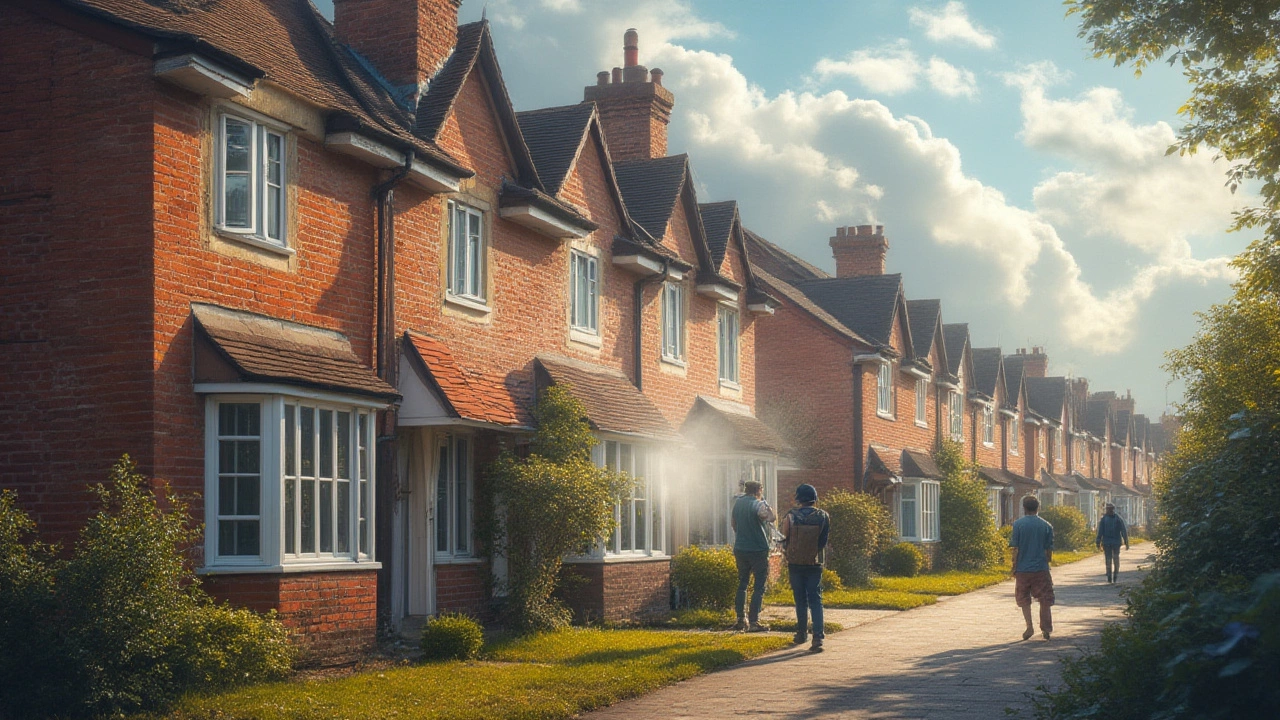
How Long Does It Take to Pressure Wash a House: Expert Timing Guide
Find out exactly how long it takes to pressure wash a house, the factors that affect timing, tips to speed things up, and what DIYers and pros need to know.
Read More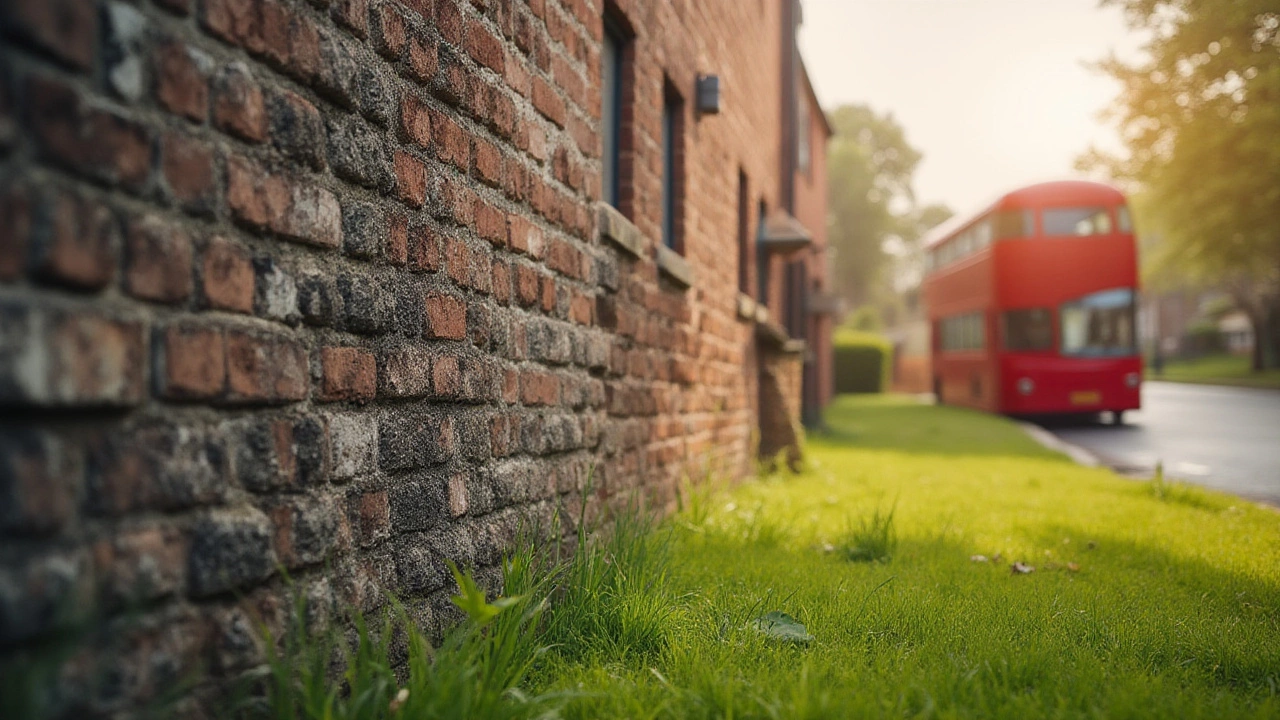
Does Pressure Washing Really Remove Mold? Facts, Tips, and What Works
Ever wondered if pressure washing can truly get rid of mold? Learn what works, what to avoid, and smart ways to use a pressure washer for effective mold removal.
Read More